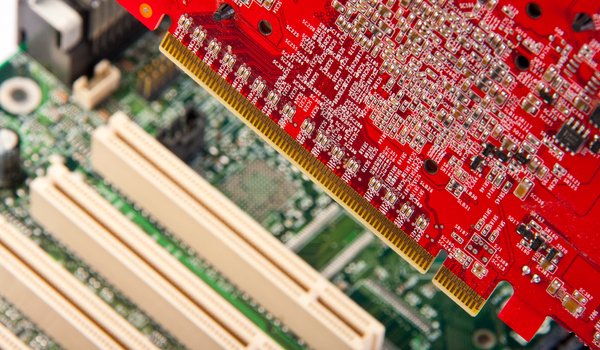What is Cloud Gaming?
It's not really new, but there's hardly any other gaming trend being followed with such great interest right now. This was also very clearly visible at the Gamescom 2019 in Cologne. Here, many manufacturers have shown their new and old cloud gaming services. But what are cloud gaming offers like Google Stadia anyway? Here you can directly access our Cloud Gaming Provider Test.

What does Cloud Gaming mean?
The name is made up of the English "Cloud" which means cloud and the term "Gaming" which means playing. Thanks to Cloud Gaming you can play upcoming games like Need for Speed: Heat without a frequently required hardware upgrade.
The first part of the name should be familiar to most people in the field of smartphones and computer technology. Here one speaks of loading data into the cloud or storing it in the cloud. This means that the data is not stored locally on one's own smartphone or computer, but is loaded from an external server.
This has the advantage that you do not fill up the storage space of your device with photos, videos and other game data that you only need occasionally. The second advantage is that you can also access the data in other ways. For example, you can download photos from your phone directly to your computer without having to connect your phone for that. At the same time, you back up the data to prevent it from being lost if you lose your phone or laptop somewhere.
But the cloud is no longer just used by private users. More and more companies have discovered the cloud for themselves. As an agile workplace 4.0, the cloud makes working from home easier and allows you to work while traveling or traveling to customer sites.
The second part of the name has also been established in the language for some time. This refers to the playing with the computer, laptop, mobile phone or game console.
In Cloud Gaming, the game is thus transferred to the user's device in a similar way to streaming on Netflix or Amazon, only a video stream of the game. So the game runs on an external server and sends the image and sound signal to the user. This sends its input from the keyboard or controller to the server and can thus move the game character.
Games as a Service
<
What are the advantages of cloud gaming?
1. Never buy new hardware again
The first advantage is that you don't need your own powerful hardware to play the latest video games on the highest graphic settings. So the expensive upgrade of the computer or the purchase of the latest video game console comes to an end. This can save a lot of money for hardware and at the same time not so much can break down. At the latest after your own expensive graphics card or the console has a defect shortly after the warranty period, you will appreciate this aspect.
2. Never buy games again
The next advantage is that you have to spend less money to play the latest games. The providers of cloud gaming offer their service in subscription. So you have the choice of dozens of games for a fixed price without having to buy one of them yourself. Since a new AAA title can cost 60 € or more today, you can calculate that for yourself quite quickly. For a hardcore gamer who regularly buys the latest titles, the whole thing pays off faster than for the occasional player.
3. Cloud Gaming is cheaper
At the latest when new hardware is due, it will get very expensive very quickly. A good gaming PC that can reproduce the latest games smoothly with high graphic quality can cost over 1,000 €. That's different with cloud gaming, because here the streaming device costs significantly less and upgrading and buying games doesn't burden your wallet any further. Only the costs of the cloud gaming service are added, which are payable monthly and thus no sudden large burden. So the one or the other gamer can also save the installment payment for his high-end PC.

4. Saving Electricity While Gaming
The electricity saving is a nice side effect that is created by optimized hardware and streaming devices for cloud gaming. Since you need less powerful hardware for cloud gaming, these devices also consume less electricity. With a powerful gaming PC, you can quickly get to 1000 watts of system power, which can be called up while playing. But even in everyday use when shopping online, watching videos on YouTube, or writing documents, such a system uses significantly more electricity than is needed for these tasks.
A system that is designed for cloud gaming could therefore correct the electricity bill downwards and make it affordable after a while.
5. No More Full Hard Drives
No more problems with storage space, because the games are no longer on your own hard drive. So you only need the software of the cloud gaming provider on your own device. Since games often have 60 GB or more, you often have to decide which of the old games has to give way to a new one on the hard drive. But if you get the urge to play the old game again, you first have to install it. After that, your own savegame must still be stored somewhere or you have to start over.
6. No Loss of Savegames
Never again lost savegames and game profiles through cloud gaming. Most providers offer the option to save the savegame with the provider. So you don't have to worry anymore that you lose your savegames after resetting your own computer or the defect of the hard drive. In addition, you also have the option of accessing your savegame from friends and anywhere else where you have internet access.
7. Playing Almost Anywhere
Location-independent gaming also with friends, on vacation and anywhere else where there is fast internet and a suitable streaming device. There is even a streaming

Playing PlayStation 4 Games on PC
Cloud gaming even works across platforms. This means that, for example, you can play a PlayStation 3 or 4 game on your computer. Another possibility is to use your mobile phone as a streaming device and thus play computer games on your mobile phone, for example. For the future, there are already plans how the whole thing should be expanded even further.
1. No more game updates
Never having to update games is probably a dream of many gamers. With cloud gaming, this dream could at least theoretically come true. Because updates of course still require the games, but you no longer have to take care of them yourself. The cloud gaming provider can keep his games up to date himself and you can play your favorite games with the latest patch.
2. Game crashes and errors
You also don't have this experience with cloud gaming in the form it usually has. Because as soon as errors occur, the professionals of the providers take care of the problem. This saves you the hassle of searching for solutions and you don't have to download dubious files from the Internet anymore, which are supposed to solve the problem.
3. Fewer pirates thanks to cloud gaming
This point is not a direct advantage for cloud gaming customers and those who are not yet. But in the long run, all gamers could benefit from cloud gaming. Currently, pirates are causing huge damage to the video game industry. The reason for this are the missed revenues for the games that are illegally downloaded from the Internet. The game development studios and publishers have to give up a part of their income and thus have less budget for future developments.
This affects small studios in particular, which cannot afford expensive law firms to search the Internet for pirated copies and write notices of default. Many small indie developers are currently keeping themselves afloat through crowdfunding

Cloud Gaming for the Environment
At first glance, this may sound a bit strange, but is cloud gaming really better for the environment? Several of the factors already mentioned come into play here. For one, you need less powerful computers for cloud gaming, which can be made with fewer valuable resources.
We're talking about gold, silver, palladium, platinum, and rare earths. Now you might say that these are to be found in the data centers of cloud gaming providers, and that is correct. However, much more people are accessing these data centers and the server or computer is used much more efficiently. While your own computer at home is only running when you're sitting in front of it, the server in the data center is in use around the clock and can therefore replace a lot of private gaming computers.
Less junk and dead raw materials in the form of old hardware components in the basements of private households. Which gamer doesn't have a box of old graphics cards or RAM modules lying around at home? These components are made of valuable raw materials and could be used more effectively elsewhere. That's exactly what large data centers like those of cloud gaming providers do. Here, old hardware is reused for other purposes and finally recycled as electronic waste and added back to the raw material cycle.
The electricity saved is also good for the environment and, in times of great debate about the world climate, a good argument for cloud gaming.

What are the disadvantages of cloud gaming?
Of course, there are always two sides of the coin and cloud gaming is no exception. The disadvantages can also be formulated very precisely and are mainly decisive for us in Germany whether cloud gaming makes sense for oneself or not.
1. No cloud gaming without internet
The dependence on the internet is obvious with cloud gaming. Without a working internet connection at home and in the server center, of course, nothing works with cloud gaming. This affects online games as well as singleplayer games and is one of the great weaknesses of playing in the cloud. With the classic game installed on the hard drive, it is usually possible to continue playing without an existing internet connection.
2. Fast internet is required for cloud gaming
Most people hurt when it comes to fast internet in Germany and sometimes rightfully so. It is all the more unfavorable that the internet speed in most municipalities and communities outside the metropolises is really miserable. Since a certain bandwidth is a basic requirement for cloud gaming, it often fails at this point.
Here one is usually powerless and also a change to another provider would not help. With too little bandwidth, the fluid HD stream quickly becomes a jerky and pixelated adventure. The time delay between image reproduction on the own screen, input on keyboard and controller and receiving these inputs in the data center finally makes playing impossible.
Most providers recommend a bandwidth of 50 Mbit or more here, which should also arrive constantly. In general, however, one can also look at cloud gaming with 5 Mbit, because some providers give this bandwidth as the minimum performance.
3. The game is gone
This problem already occurs with streaming providers for movies and series. It happens regularly that movies and series disappear from the online library and are therefore no longer available to the customer. It is particularly annoying that this usually happens without notice and mostly affects the series that one is
Our Conclusion: Cloud Gaming - Pros and Cons
Cloud Gaming is a fast, cheap and above all flexible way to enjoy your favorite games. The possibilities of this technology have already been shown to us by the video streaming providers Netflix and Amazon Video. Like video streaming, cloud gaming is linked to the broadband expansion in Germany. But since this has not been a big issue for us for a long time, we think that cloud gaming will only gradually establish itself.
Unfortunately, neither the gamers nor the cloud gaming providers have this in their hands. So both sides still have some time to test and further develop the technology.
After that, however, the technology will spread very quickly in other regions of the world and arrive in the mass of gamers. The arguments in favor of cloud gaming are simply too strong for anything else.
Just take a look at our cloud gaming provider test, then you'll definitely find the perfect cloud gaming provider for you:
